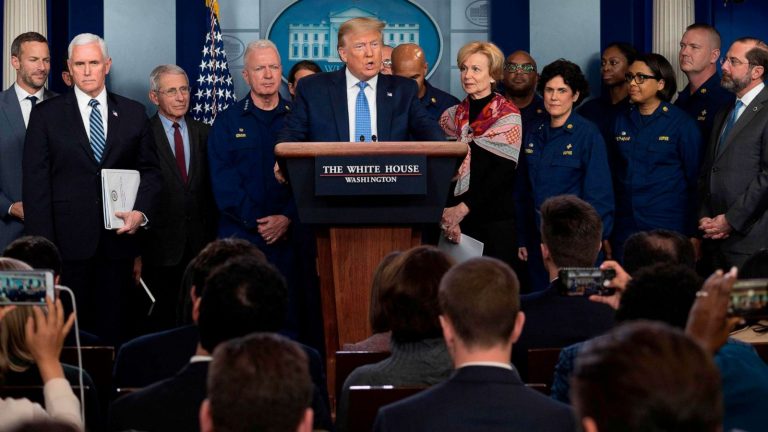Government seems to have a history of taking societal problems and crisis and catastrophically making them worse by legislating one size fits all solutions. According to the media, politicians, and bureaucrats, global economic shut down is the best strategy to prevent deaths and “flatten the curve” of this COVID-19 crisis. But why stop there? If this method is correct, why not apply it to other areas in our lives?
Every year in the United States alone, 35,000 people are killed in car accidents; yet we all still choose to operate our personal vehicles daily. If we need to shut down all economic activity to save 3% of the population, 1% of the population, 100,000 people in your home state, or whatever statistic is currently being touted as these predictions seem to be constantly in flux, shouldn’t we also carry this reasoning across our daily lives?
Can you put a price on human life?
Everyone arguing that 1-2% of the population dying isn’t a big deal needs to identify 1 or 2 close family members or friends that they are willing to offer up to death in this moment for capitalism. Name them.
— Bree Newsome Bass (@BreeNewsome) March 24, 2020
If you aren’t willing to remain in your home, shutter your business, or potentially lose your job, you are held personally responsible for contributing to the death toll of the coronavirus. Only a traitor to the community and country would do such a thing, and to make sure you comply the government is here to enforce its plan. This collectivist view and response to the COVID-19 pandemic, seems to be the only view in evaluating the trade-offs and cost and benefits of policy decisions.
Politicians and bureaucrats are so committed to this collectivist approach that they have begun implementing draconian measures to limit human interaction. The Rhode Island governor plans to deploy the National Guard door to door ensure all visitors from New York are quarantined for two weeks. The Virginia Governor has banned all gatherings of ten or more people at any time, including places of worship. Florida has set up checkpoints on major interstates to screen, divert, and mandate quarantine for motorists from New York City and New Orleans. What of the unintended consequences of this widely accepted collectivist approach?
When we determine that the lives saved by shutting down the economy are greater than the cost, we unknowingly affirm the directly protected lives to be more valuable than the lives harmed from the decision. Much of the inadvertent damage can bear a cost unforeseen until the damage has already been done.
In Knox County, Tennessee they saw more suicides in a 48 hour period than deaths caused by COVID-19. The economic shut down is causing desperation and despair among working people everywhere.
However, Governor Andrew Cuomo of New York has begun to question the accepted collectivist view and central planning method as he witnesses the unprecedented damage it has caused to his constituents’ lives and welfare. Politicians can be tempted to quickly take drastic measures to shut down the economy and pass broad stay-at-home orders in order to not be labeled as an idle placeholder.
Should the collectivist view be the only lens we look through to evaluate how we should respond to the virus?
When using this approach and looking at the predicted fatality rate, it is hard to not say it is worth shutting down the economy. But then why do people still drive their cars or take a variety of other risks in their lives? Because there is another view to evaluate these decisions. A more individualistic approach we use in our personal decisions throughout our daily lives.
There is a 1 in 6,700 chance of dying in a fatal car accident each year, and yet every day most of us get into our cars and drive to work, the grocery store, to see family and friends. We are not looking at it as being willing to sacrifice 35,000 innocent lives, we are evaluating individually the cost and benefit of this decision. One in six thousand is the average. There are plenty of ways to improve these chances such as not driving intoxicated or while sleep deprived, following the speed limit, or avoiding texting while driving. What if we applied this same reasoning to making sound decisions around the COVID-19 Pandemic?
Are you willing to shut down your daily life over a 1 and 3,000 chance of contracting the virus? Individually, we can positively impact these odds by making personal decisions such as avoiding crowds and washing our hands. If you or your family members are in high risk categories, self-isolation and a prolonged quarantine is most likely best; but there is a sizable gap between responsible social distancing and complete economic shut down.
South Korea and Sweden are seeing success in decreasing the rate of new cases and the death toll while keeping business open and society freely functioning. Their success is ignored by U.S. policy makers because it does not align with the popular collectivist orthodoxy.
Coronavirus is a grave issue and it needs to be taken seriously. The consequences of broad sweeping policy decisions have started to show they may produce more harm than good. The collectivist approach currently has a monopolistic hold on popular opinion. Even suggesting a different view can cause a dissenter to be expelled from polite society. A methodological individual approach requires humility for leaders to admit they do not have all the necessary insights and answers. Decisions are best left to individuals and local community leaders who have the unique advantage of personal and localized knowledge that central planners do not possess. Freedom when sacrificed for expediency can lead to wide despair, desperation, and compound the very crisis that our freedoms were sacrificed to solve.














Add comment